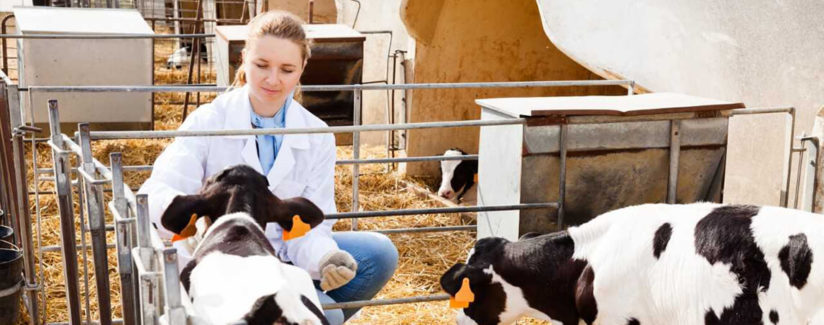
Antibiotics and Use in Food Animals. Part 2
In part one of our four-part series on antibiotics, food blogger Alice Choi spoke with an expert about antibiotic resistance. While we know that the discovery and use of antibiotics represents one of the greatest human and veterinary medical advances in history, recent concerns about overuse have people wondering about the impact on human health of use of antibiotics in animals raised for food. For answers on antibiotic use in livestock production, Alice visited with Jeff Bender, DVM, MS, DACVPM, with the Center for Animal Health and Food Safety at the University of Minnesota.
“Antibiotics are medications that we used to actually treat ill animals,” Dr. Bender said. “It also could be used to prevent disease, so when we mix a group of animals together just like we mix children together at a daycare, there’s a chance for disease transmission to occur and sometimes those could be bacterial. And so treatment, prevention and control are really the main ways that we use antibiotics.”
He explained that antibiotics are given to animals by farmers or ranchers under the supervision of a veterinarian.
“Veterinarians are critical in working with the farmer if he needs to make decision about what dose, how frequently it needs to be given and then more importantly, working with a farmer about what we call the withdrawal period; the time from when you stop antibiotics to the time that the animal can actually go into the market system,” Dr. Bender. said.
Mechanisms are in place to test products such as meat and milk to make sure there are no antibiotics in food that is being eaten. Because of concerns about antibiotic resistance, in the United States, it is no longer allowed to use antibiotics for growth promotion.
“When using antibiotics there’s a potential for those organisms to change and adapt. So, we have to think more globally about antibiotic use. Do I really need to use an antibiotic? In the same way, the veterinarian needs to work very closely with the farmer to say do we really need an antibiotic here? If it’s an animal welfare issue, you know the animal is ill, than antibiotics might be very necessary,” Dr. Bender said.
For those concerned about antibiotic use, Dr. Bender gave this advice. “The food that we have in our grocery stores is good. It is inspected, there are regulations in place to really eliminate the possibility that there were antibiotics in there. Products that you buy at the grocery store, you should feel comfortable in consuming.”
Farmers and veterinarians work together to treat, prevent and control diseases. Farmers work with veterinarians to determine proper dosages and frequency of use, as well as adequate withdrawal periods for antibiotics from the animal’s system prior to going to market. Processes are in place to make sure food is safe and free from antibiotic residue.
Check out our video series on antibiotic resistance:
What Causes Antibiotic Resistance? Part 1


























